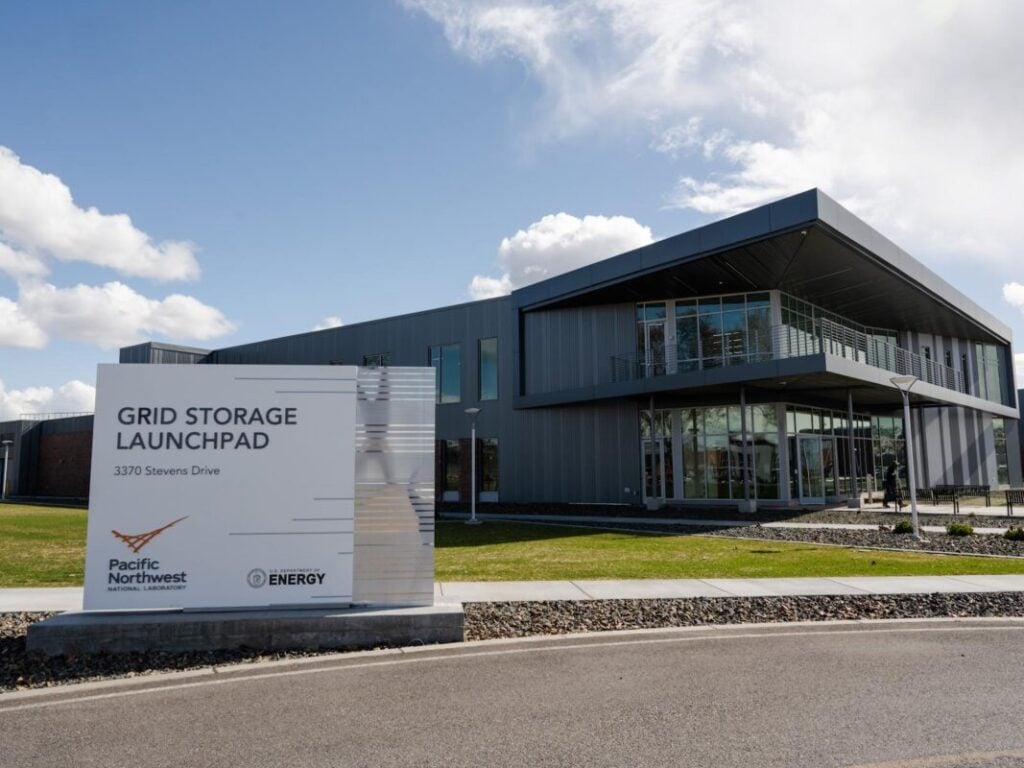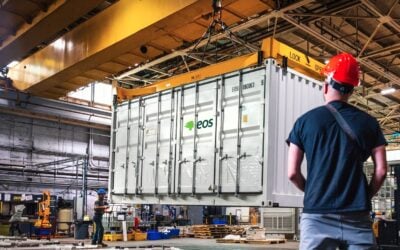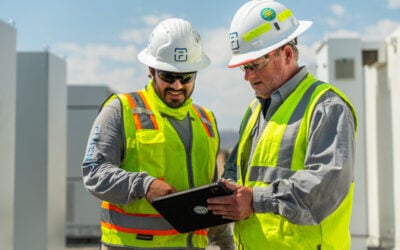
A new research centre ‘uniquely equipped’ to evaluate energy storage technologies has opened at Pacific Northwest National Laboratory (PNNL) in Washington, US.
PNNL, one of the US Department of Energy’s (DOE) 17 National Laboratories, welcomed dignitaries, including Washington Senator Maria Cantwell, to a dedication event last week at the 93,000-square-foot Grid Storage Launchpad facility.
Enjoy 12 months of exclusive analysis
- Regular insight and analysis of the industry’s biggest developments
- In-depth interviews with the industry’s leading figures
- Annual digital subscription to the PV Tech Power journal
- Discounts on Solar Media’s portfolio of events, in-person and virtual
Grid Storage Launchpad (GSL) will test, validate, and accelerate new battery materials for stationary energy storage and transport applications in configurations of up to 100kW in 35 laboratories designed to resemble realistic conditions. PNNL said in an announcement last week (13 August) that GSL will be ‘uniquely equipped’ for this type of work.
Construction began in April 2022, as reported by Energy-Storage.news, and its cost was cited at US$75 million at the time.
The bulk of the funding came from the DOE’s Office of Electricity in collaboration with the Office of Science. The Clean Energy Fund (CEF) of Washington State contributed US$8.3 million.
DOE funding was committed through the FY 2021 Energy and Water Development Funding Bill, approved by the US House Committee on Appropriations in summer 2020. GSL’s work to accelerate energy storage development was considered a “national priority”, alongside US$500 million support for energy storage manufacturing and US$770.5 million in grants to US-based manufacturers of advanced batteries and components.
PNNL director Steve Ashby said the new R&D centre will “house some of the world’s most accomplished scientists and engineers from PNNL, other national labs, academia, and industry—working together to develop real-world solutions that will benefit our nation and the world”.
Flow batteries, pumped hydro among technologies that could unlock ‘promise of long-duration storage’
GSL’s opening comes a couple of weeks after the Office of Electricity (OE) published a report, ‘Achieving the promise of low-cost long-duration energy storage’, which the office said charted a path towards understanding the investments and time required in that endeavour.
Part of the DOE’s Energy Earthshots programme to advance R&D and commercialisation of sustainability technologies, the report is a synthesis and amplification of a 2023 technology strategy assessment for achieving a US$0.05/kWh cost of long-duration energy storage (LDES).
“This report is one example of OE’s pioneering R&D work to advance the next generation of energy storage technologies to prepare our nation’s grid for future demands,” OE assistant secretary Gene Rodriguez wrote in the report’s foreword.
Defined as technologies capable of storing and discharging energy over 10+ hours, the DOE has targeted a cost reduction in LDES of 90% from 2021 to 2030, recognising current high prices as a major barrier to widespread deployment.
The full report (PDF) describes 10 different technologies across electrochemical (e.g. flow batteries, sodium-ion, lithium-ion, zinc, supercapacitors), chemical (hydrogen), mechanical (pumped hydro and compressed air) and thermal energy storage categories.
The OE found that flow batteries and the two mechanical storage technologies could achieve the Earthshot’s US$0.05/kWh levelised cost of storage (LCOS) goal by the end of the decade.
Meanwhile, lithium-ion (Li-ion), lead-acid and zinc batteries will have an LCOS of less than US$0.10/kWh as the target date approaches, sodium-ion (Na-ion), lead-acid and zinc batteries could hold the greatest cost reduction potential (falling by US$0.31/kWh to 2030) and pumped hydro energy storage (PHES), supercapacitors (supercaps) and flow batteries will see the next biggest LCOS drops of about US$0.11/kWh.
That said, results vary greatly and the OE said additional analysis and research may be useful given the relative lack of industry data available.
For example, the average investment required to facilitate achievable cost reductions of 12% to 85% across the top 10% of innovation portfolios ranged from US$86 million to US$1,063 million and could take between five and 11-and-a-half years, the report said.
In a separate project to GSL, Pacific Northwest National Laboratory is installing a vanadium redox flow battery (VRFB) system from Anglo-American manufacturer Invinity Energy Systems with a 24-hour discharge duration. As reported by Energy-Storage.news in November 2023, the 525kW/12,600kWh VRFB is being installed at PNNL’s Richland Campus in Washington State.






